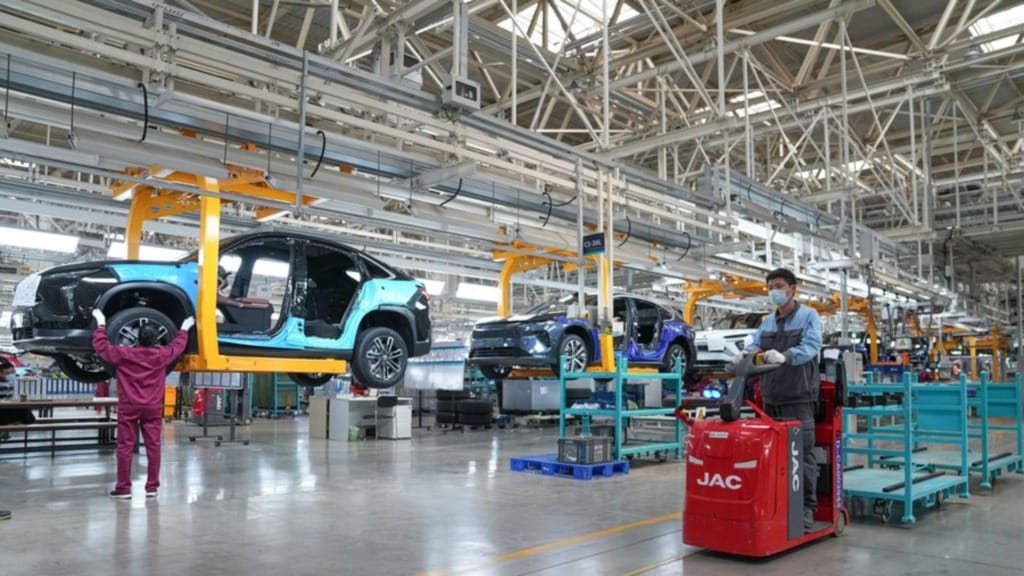Nio introduces a second-generation smartphone to enhance the EV experience
Chinese EV maker Nio launches second-gen smartphone with AI features to enhance driving and reinforce innovation.

Chinese electric vehicle (EV) maker Nio has launched its second-generation smartphone, equipped with an artificial intelligence (AI)-powered chatbot tool. This move aims to strengthen Nio’s position as a leader in innovation. The new Nio Phone starts at 6,499 yuan (US$896) and boasts advanced technological features, enhancing the driving experience for owners of Nio’s intelligent vehicles. William Li, co-founder and CEO of the Shanghai-based carmaker, shared his vision at the Nio In 2024 Tech Day event on July 27.
Table Of Content
New features for a better driving experience
The Nio Phone introduces several exciting features. It comes with Nomi GPT, an AI-powered voice assistant, offering users a better voice-activated control experience. Additionally, it allows owners to connect the phone with cameras installed in the car for live video streaming. This second-generation device builds on the success of Nio’s first phone, launched last September, which could initiate self-parking mode, unlock the car even when powered off, and transition video calls from the phone to the car’s screen and speakers.
A strategic move in a competitive market
Nio’s entry into the smartphone market highlights its commitment to innovative technology. The company’s strategy focuses on integrating intelligent features into its products, appealing to consumers who value technological advancements. The Nio Phone is produced by Hunan-based Lens Technology, which supplies smartphone lenses to Apple.
Nio’s push into smartphones comes when an EV’s appeal in China is increasingly defined by its intelligence rather than range or cost. Falling production costs and intense competition have made these factors less significant. Polestar, the EV brand of Geely Automobile Holdings-owned Volvo Cars, announced plans to launch its smartphone in mainland China last year. Meanwhile, Chinese smartphone vendor Xiaomi and telecom giant Huawei Technologies are also developing smart cars and phones. Still, they have yet to announce a smartphone explicitly designed as a companion device for their vehicles.
Nio’s vision and prospects

Since its establishment in 2014, Nio has been recognised as a leader in developing smart cars in China. The new smartphone is expected to be well-received by Nio car owners. However, the company still faces the challenge of increasing deliveries to expand its customer base and improve profitability. Nio has yet to post a profit and faces fierce competition in the mainland market, where a discount war is further squeezing profit margins for the country’s numerous carmakers.
On July 27, Nio launched its SkyOS operating system and unveiled the Shenji NX9031 autonomous driving chip, showcasing its technological expertise. In June, the company set a new sales record for the second consecutive month, with deliveries rising 3.2 per cent month-on-month to 21,209 units.
















